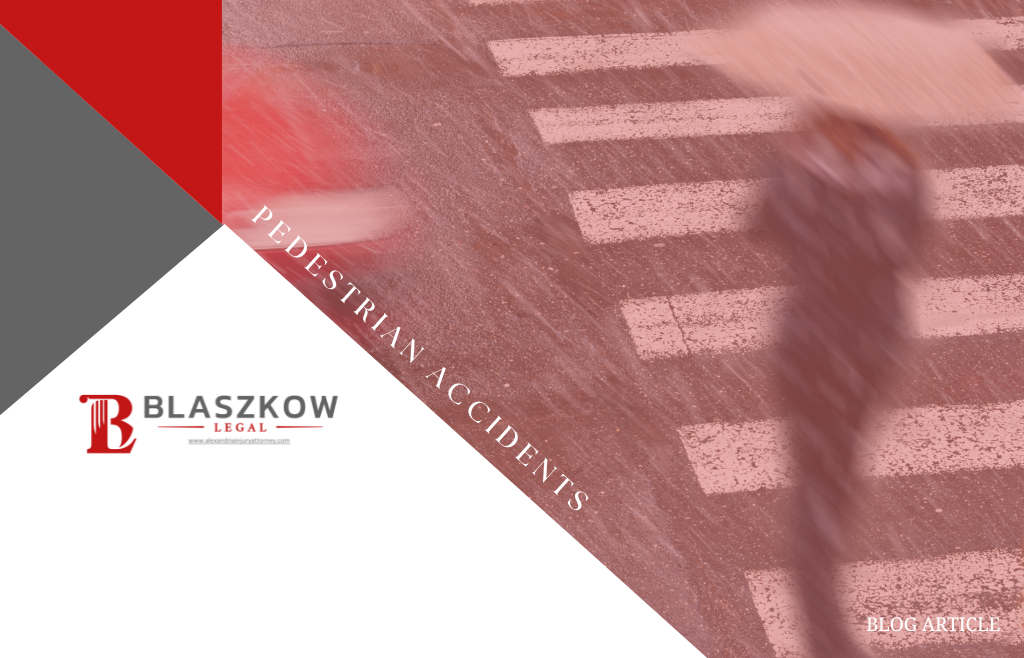
Most American cities are designed with vehicles in mind, but that doesn’t mean that people don’t still need to travel on foot at times. Whether someone is jogging or walking to a bus stop, traveling near the road as a pedestrian is dangerous. Sidewalks can make things relatively safer, but they’re not guardrails – so the risk persists. When negligent motorists injure pedestrians, they may be entitled to compensation for their injuries, but certain factors can get in the way.
Contributory Negligence
Contributory negligence is a legal doctrine that says that if a plaintiff is partly at fault for their own injuries, they cannot recover damages from the defendant. This can be a very difficult concept for many people to fully appreciate as because there’s a misconception that pedestrians have the right of way in all situations. This misconception persists because many people read about huge cases on the news, but do not recognize that legal standards are different from state to state. A case in Arizona won’t be the same as a case in Virginia, even if the facts and injuries are similar.
The jurisdictions that practice the doctrine of contributory negligence include: Virginia, Maryland, Washington, DC, Alabama, and North Carolina. This means that even if a pedestrian is only 1% at fault for their own injuries, they cannot recover any damages from the driver who hit them.
How to guard against allegations of Contributory Negligence
Allegations of contributory negligence will often come from the at-fault insurance companies’ adjusters. They do not merely throw down this gauntlet in every case, but they do try to. Just like we, as plaintiffs’ attorneys, are trying to locate the evidence to prove your claim, they are searching for evidence to disprove it, and attack it.
The most common way adjusters make this argument is by interviewing pedestrians who are hurt. The insurance adjusters are good at their jobs: they are well trained to speak sweetly and empathetically. Their goal is to lull you into a false sense of security, and to believe that they are looking out for you. Once they have done this, they ask questions: they want to know where you were looking, when did your telephone ring, what shoes were you wearing, what did you hear, how long was the pedestrian light flashing “walk?”
These adjusters will get you to say things that they can use against you! Just like in criminal cases, anything you say in a civil matter can and will be used against you.
Insurance adjusters will often talk injured people into providing recorded statements, which are transcribed and then used to attack your claim.
How can you prevent this? NEVER speak to an insurance company without the benefit of legal counsel. Always talk to a lawyer before you talk to an insurance company. Some adjusters will, somewhat unscrupulously, tell you that you don’t need an attorney. But the truth is, you do. Insurance companies are protecting their stockholders: Blaszkow Legal is protecting you.
Why is Contributory Negligence Important for Pedestrians?
Pedestrians need to be especially cautious of contributory negligence laws because it impacts their ability to recover damages. Compensation of some kind is necessary for many injured individuals to cover the costs of medical bills, lost wages, and lowered quality of life. The odds are not in favor of pedestrians. They’re completely unprotected, unlike drivers who are much less likely to experience injuries after a pedestrian accident.
Keeping this in mind, pedestrians need to remain vigilant about following all applicable laws to avoid being penalized by contributory negligence. Unfortunately, this is often easier said than done. For example, even if a pedestrian is legally crossing the street in a crosswalk and has the right of way, they could still be found contributorily negligent if they ignored oncoming traffic or failed to look before crossing. Even if the driver was primarily at fault, contributory negligence would bar the pedestrian from seeking damages.
There are a few things that pedestrians can do to avoid being found to be contributorily negligent in an accident:
– Always look both ways before crossing the street, even if you have the right of way.
– Be aware of vehicles that may be turning or backing up, and never assume that a driver will see you. Especially in parking lots.
– Use crosswalks whenever possible. Jaywalking may not be high on the list of priorities for the police, but it will affect your ability to seek compensation.
– Always follow the traffic lights! If the don’t walk sign is on, then do not walk!
– Make eye contact with drivers before crossing the street.
– Just like drivers, if you’re on the street or crossing, don’t be distracted by texting or talking on the phone.
– Wear bright clothing so that drivers can see you.
The Aftermath of an Accident
If you are injured in any accident, as a pedestrian or otherwise, you must seek medical attention immediately. You should also contact a personal injury attorney as soon as possible. With their guidance, you can rest assured that they will investigate all evidence and build a strong case to get you the best possible outcome and clear you of negligence.
To assist with this process, if possible, preserve evidence of any kind after a pedestrian accident. Get names and contact information from any witnesses, and take pictures of the accident scene. If there were any cameras in the area, your legal team will contact the owner of the cameras as soon as possible to preserve the footage.
Although contributory negligence has the power to negatively impact your case, it is equally capable of protecting your right to damages. With the help of the team of attorneys, paralegals and investigators at Blaszkow Legal, PLLC, you can increase your chances of recovering damages after an injury – let us fight for you! Get Justice with Joe Blaszkow and call 703-879-5910 for a free consultation!

